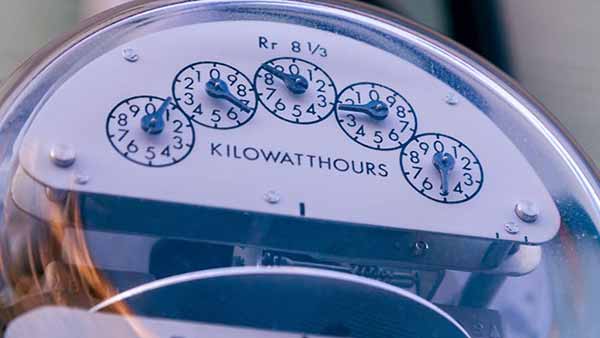There are numerous energy suppliers to choose from in deregulated energy markets. And yet.
Month after month, the energy bill rolls in and you pay it, regardless of whether you’re satisfied with the service, the rate, and your contract.
So many people fall into the trap of not realizing they have options when it comes to energy suppliers. You may not have to settle for the company everyone else on the block is using — you may have the power to choose.
If you’re unhappy with your current energy supplier, it might be time to make a change. How do you know who to call, how much they charge, and how switching providers will impact your bill? To figure it out, you need to ask yourself and prospective power companies some questions.
Some of the most critical questions you can ask are outlined in this guide. Keep these in mind before committing to a new energy company.
What Should I Look for When Choosing an Energy Supplier?
A lot of homeowners and small business owners don’t realize that they can choose their energy supplier. You’re not stuck with whoever is most popular in your local town, and you have the freedom to switch as long as the provider offers service in the area.
The question then becomes, “How do I know who to switch to and why?” There are a lot of factors you’ll want to consider and many of the questions presented in this guide will help you make that decision.
Can I Choose My Own Energy Supplier?
The first question that many people ask is whether switching their energy supplier is even possible. Twenty-six states offer some type of energy choice. Certain states allow you to choose your own electric provider, some allow it for gas, while others allow both.
One great way to find out if you have other energy companies available in your service area is to turn to a quick Google search. Each state should offer a public utility commission website with a list of providers.
Of course, the results you receive will vary based on your state, but either way, comparing rates and choosing your preferred energy supplier is a real possibility for some folks.
Is Switching Energy Suppliers Worth It?
It’s worth it if you know which energy suppliers offer services that meet your needs!
Some companies offer discounts if you switch. This means you’ll be able to receive a discounted rate, resulting in lower energy bills for a certain number of months.
Certain energy suppliers offer a fixed-rate price across the length of your contract. This means that your kilowatt-hour (kWh) rate will not increase during that contract period. So, if rates are increasing, which is expected throughout 2022 and into 2023, a fixed rate could make an energy supplier more desirable.
Here are five common reasons why people switch energy suppliers:
- Looking for green energy solutions
- Changing to a fixed rate
- Bundling gas and electricity together
- Special offers for new customers
- Better pricing options
What Is a Good Electric Rate?
Prices vary from state to state, with the average in the United States around 10.42 cents per kWh. States like Nevada and Texas have low rates hanging around the 8-8.4 cent range. Hawaii has the highest energy rates, approximately 32 cents per kWh.
There are many reasons why electric rates vary per state, and there are different things you can do to limit your energy consumption and lower your bills.
The time of day is one of the most significant factors. If you’re using a lot of electricity when the demand is high, you can expect the rate to increase. These are called peak hours. Your peak hours will vary based on what time zone you’re in and what season it is as well.
If you’re determined to save money on your energy bills, you’ll want to keep any energy-intensive tasks to off-peak hours. Doing so will increase your energy efficiency and ultimately reduce your energy bill.
How Do Power Bill Payments Work?
In addition to the kWh and fixed or variable rate, you want to ensure that your chosen energy supplier has a straightforward payment process. Do they offer online options for payment, automatic bill pay, or discounts for paperless billing?
Be sure to fully understand how payments work before changing your energy supplier. Once you’ve committed to a contract, it could be difficult to pull out of it if you’re not pleased with the payment process. Some energy suppliers will charge you an early-termination fee if you try to back out before the end of your contract.
How Do the Energy Supplier’s Prices and Services Compare to Competitive Suppliers?
Money talks, so it’s important to see how the cost of their services compares to other suppliers. Keep in mind that you may not want to pay attention to price only; you should also look at the unique services provided to ensure you’re getting the most value for your money.
Also, consider other things that may be important to you.
- Does the energy supplier offer renewable energy?
- Do they have a hybrid option that allows you to allot a small portion of your energy for renewable options?
- Do they experience frequent outages?
- What type of contracts do they offer?
- Do they have options for business or commercial use that you could benefit from?
All of these factors play a role in the overall value without actually having anything to do with price. Don’t let the price tag immediately turn you away, because the services provided might present enough value to make switching worth it for you.
Enter your ZIP Code and compare electricity rates
How Do I Know Who My Electric Company Is?
In some cases, you may not even know who your current energy supplier is. The easiest way to find out is to get your most recent electric bill and look at the itemized section on it. The amount you pay is likely broken down into a few sections, with electric supply charges being one of them.
Somewhere in that area, you’ll find the name of the energy supplier you have currently, and you’ll also see the kWh rate there. Knowing this information is crucial because it’ll help you decide on what new electric supplier to choose. You may also need that information when you contact a prospective supplier, because they might ask who you currently have so they can compare rates and provide you with the best options.
Do Power Companies Have Minimum Usage Provisions?
A minimum usage fee occurs when someone doesn’t use the required amount of kWh per month. A survey done in Texas showed that the average consumer used 1,132 kWh per month in 2020.
Some power companies have minimum usage provisions and may charge a fee. Typical cut-off points that could incur a fee are 500 or 1000 kWh. Each company is different — some charge a fee while others don’t. Ask your supplier if they have a minimum usage fee or read your EFL to find out.
Minimum usage fees aren’t always a bad thing and are generally a way for energy companies to keep prices fair and competitive. It’s just important that you understand whether or not a company has a usage requirement so you can be prepared.
Is It Cheaper to Get Gas and Electric From the Same Supplier?
When you get your gas and electricity from the same supplier, it’s called “dual fuel energy,” and it can be a smart choice. It’s not only cheaper in many cases, but it’s simpler and easier to understand.
Some energy suppliers also offer discounts in the form of cash back, a cheaper energy rate, or money off your bill. Keep in mind that no company has “better” gas or electricity than the other. The biggest factors you need to consider are price, customer service, and renewable energy. For these reasons, bundling the two together is often the smarter choice.
Are There Any Bonuses or Incentives to Sign Up for Utilities?
Most companies across various industries offer incentives for people who switch to their company. We see this in wireless companies, internet providers, and also in gas and electric companies.
You should find out if the company you’re thinking of switching to offers discounts or credits that you can apply to future bills.
What Options Do I Have for Contract Lengths?
When you agree to do business with an energy supplier, you’ll likely have to sign a contract. The length of a contract can vary from month to month to as long as five years.
Each contract length has its own pros and cons. A short-term contract offers you the flexibility to change whenever you want, which can help you get in on a different energy supplier when rates are low. The problem is since you’re likely dealing with a variable rate, the prices can fluctuate — perhaps dramatically — from month to month.
In the case of a long-term contract, you’re locked in for a more extended period, but it helps you better budget around the stability of your rate. There’s more commitment associated with a longer contract, and you won’t be able to pull out whenever you find a lower rate.
Do Energy Suppliers Have Early-Termination Penalties?
As with many types of contracts, you’ll likely face a penalty if you try to pull out of the contract before it’s over. It’s important to know how much that penalty is because, in some cases, it can be lower than the savings you’d experience by switching to a new supplier.
This risk is one reason why it’s so important to read all the fine print of a contract — little pockets of information can be hidden in there. It’s also a reason why it’s great to have a dedicated agent to help you navigate the process of changing your energy supplier.
Will Energy Prices Rise in 2022?
It’s believed by many experts that energy prices will continue to rise through 2022 and beyond. This is because of a struggling transition to green energy, as well as supply chain and transportation issues.
A lot of people continue to choose renewable energy sources because of it. The cost of clean energy continues to go down, while fossil fuel production declines and more and more people turn away from it.
Choosing Energy Suppliers Doesn’t Have to Be a Challenge
Residential customers should understand they have a choice for energy solutions. Choosing a better option for energy doesn’t have to be a headache when you understand what factors to look for in the best supplier.
Asking yourself and the prospective supplier some of the above questions will point you in the direction of savings.
If you’re considering a switch because you’re not pleased with your current energy provider’s service or pricing options, Energy Savings can help. We’re your one-stop shop for electricity, natural gas, and renewable energy. The process is quick, easy, and transparent.
Brought to you by energysavings.com
All images licensed from Adobe Stock.
Featured image:



